Health
New Era Begins As House Settlement Approved
WASHINGTON, D.C. – June 6, 2025 – Today marks a historic milestone for college athletics in the United States. The U.S. District Court for the Northern District of California has granted final approval to a settlement in the House v. NCAA (“House”) litigation. This landmark settlement – agreed to by plaintiffs representing nearly 400,000 current […]

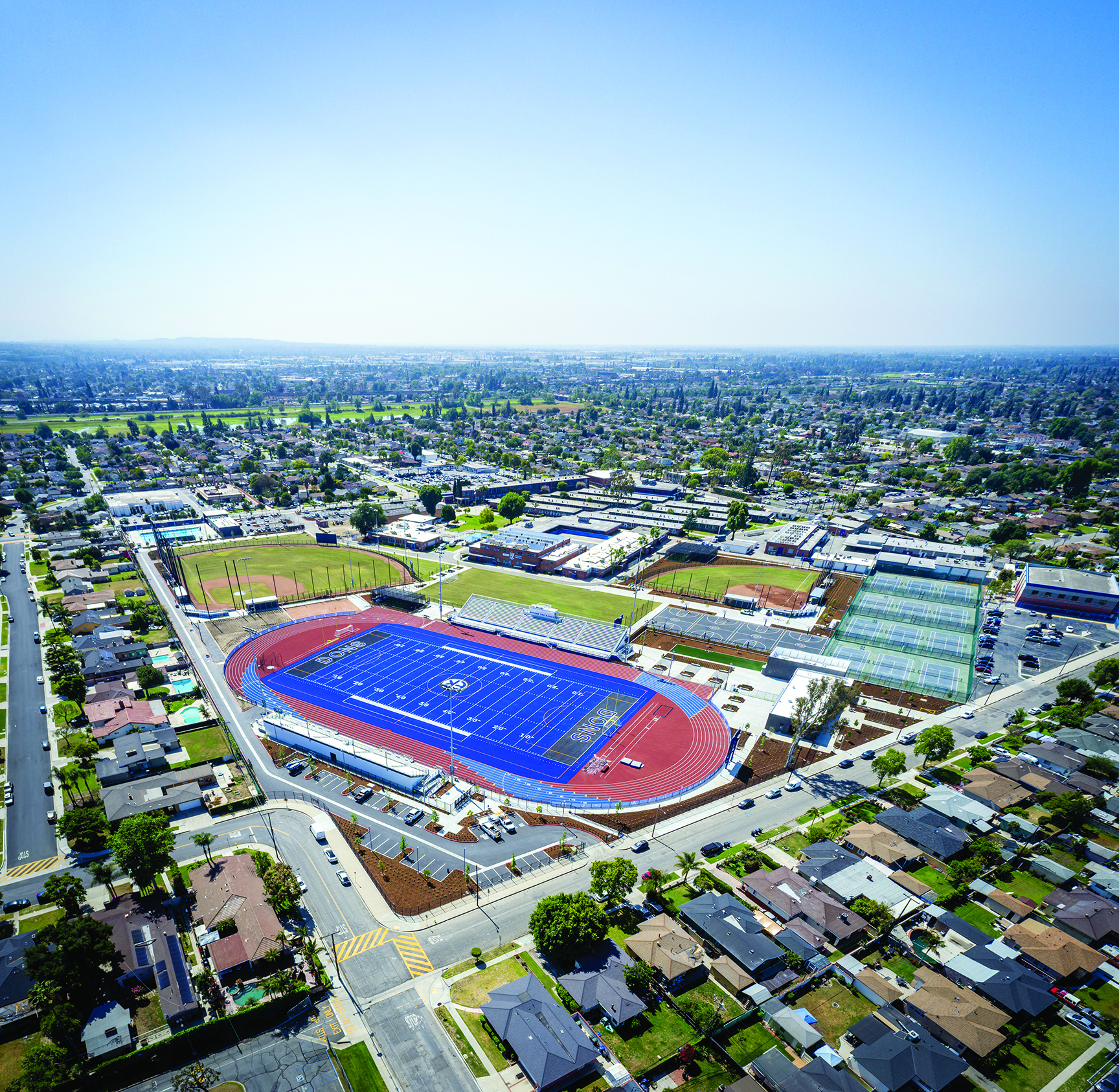
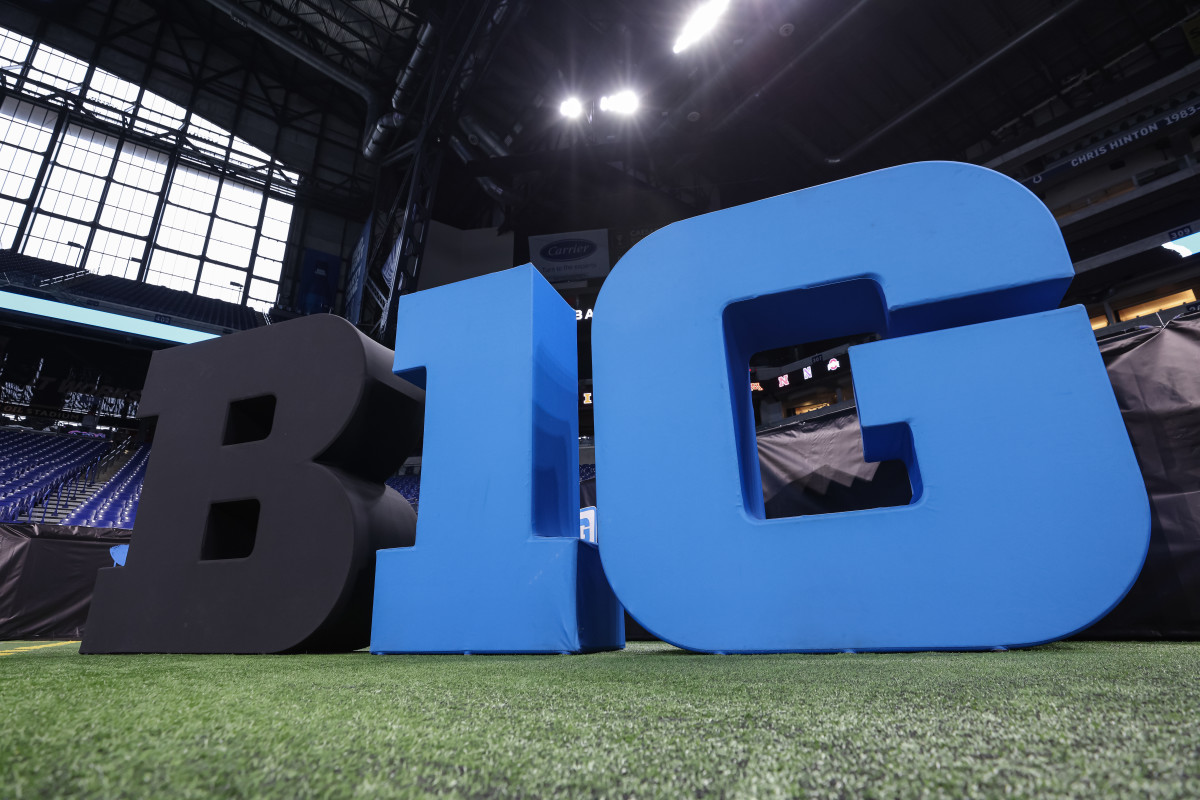
WASHINGTON, D.C. – June 6, 2025 – Today marks a historic milestone for college athletics in the United States. The U.S. District Court for the Northern District of California has granted final approval to a settlement in the House v. NCAA (“House”) litigation. This landmark settlement – agreed to by plaintiffs representing nearly 400,000 current and former student-athletes and the NCAA, Atlantic Coast Conference (ACC), Big Ten Conference, Big 12 Conference, Pac-12 Conference and Southeastern Conference (SEC) – will reshape the landscape of college sports, paving the way for a model that prioritizes fairness, stability, integrity and opportunity for student-athletes and institutions.
Overseeing this model will be the newly established College Sports Commission – an independent body that will be responsible for implementing the settlement terms governing revenue sharing, student-athlete Name, Image and Likeness (NIL) deals and roster limits. The Commission will investigate any potential violations of these rules, make determinations regarding potential rules violations and penalties, provide notice and opportunity to be heard, participate in the arbitration process and ultimately administer penalties for violations of these rules. The Commission’s leadership team will be announced in the near future.
Under the new system, student-athletes will have more opportunities to financially benefit during their participation in intercollegiate athletics than ever before. Institutions are now able to share revenue directly with student-athletes, in addition to providing existing benefits such as athletic scholarships, access to world-class training facilities, academic counseling, medical care, post-eligibility medical coverage, mental health resources, nutritional guidance and life skills development.
Beginning July 1, 2025, each year, participating schools can distribute up to 22% of the average revenue among schools in the ACC, Big Ten, Big 12, Pac-12 and SEC from media rights, ticket sales, and sponsorships – known as the revenue sharing cap. The cap is estimated at $20.5 million per school for the 2025-26 academic year, pending final confirmation. To ensure revenue sharing with student-athletes is appropriately managed and reported to the Court for compliance, athletics departments will use the new College Athlete Payment System (CAPS) platform developed by LBi Software.
Student-athletes will also be able to continue receiving compensation from third-parties other than their institutions for the use of their NIL, so long as their NIL deals are made with the purpose of using their NIL for a valid business purpose and do not exceed a reasonable range of compensation. On behalf of the College Sports Commission, Deloitte* has built and will maintain a new technology platform called NIL Go in which student-athletes will be required to report their NIL deals to confirm they are in compliance with the rules. Deals will be evaluated based on:
- Payor association – The relationship between the payor and the student-athlete’s school.
- Valid business purpose – Whether the payor is seeking the use of the student-athlete’s NIL for a valid business purpose, meaning to sell a good or service to the public for profit.
- Range of compensation – Whether the compensation paid to the student-athlete is commensurate with compensation paid to similarly situated individuals.
Finally, for participating schools, NCAA scholarship limits have been removed and roster limits have been established for each sport, allowing for a significant increase in scholarship opportunities for student-athletes. Under this new model, schools will have the option to offer partial or full scholarships to every student-athlete on a team’s roster, as long as the total number of student-athletes stays within the sport’s specific roster limit. Efforts have also been made to ensure current and immediately incoming student-athletes are not adversely impacted by the establishing of roster limits. Removing scholarship limits allows schools to better support their student-athletes through new scholarships, particularly in non-revenue-generating sports.
“This is a significant moment for college athletics that will provide unparalleled opportunities for student-athletes. We look forward to implementing this new system which offers much-needed transparency and structure to create a more sustainable model for the long-term future of college athletics,” said Jim Phillips, Ph.D., Commissioner of the Atlantic Coast Conference.
“We look forward to implementing this historic settlement designed to bring stability, integrity and competitive balance to college athletics while increasing both scholarship and revenue opportunities for student-athletes in all sports,” said Tony Petitti, Commissioner of the Big Ten Conference.
“As we enter this new era of college athletics, it is crucial we do so with structure, transparency, and the success of student-athletes in mind — this settlement and new model will ensure that happens. I look forward to working alongside my colleagues to implement this new system that prioritizes fairness and opportunity for all student-athletes and institutions,” said Brett Yormark, Commissioner of the Big 12 Conference.
“It’s a new day in collegiate athletics. This historic moment allows us to maintain what makes college sports special, the development of young individuals through sport, while also evolving to meet today’s student-athletes where they are with new opportunities in a manner that provides long-term stability for collegiate athletics. I am proud to work alongside my colleagues as we implement and introduce the future of college sports,” said Teresa Gould, Commissioner of the Pac-12 Conference.
“The approval of the House settlement agreement represents a significant milestone for the meaningful support of our student-athletes and a pivotal step toward establishing long-term sustainability for college sports, two of the Southeastern Conference’s top priorities. As the journey to modernize collegiate sports continues, we remain focused on identifying and implementing innovative opportunities for our student-athletes across all sports while maintaining the core values that make collegiate athletics uniquely meaningful,” said Greg Sankey, Commissioner of the Southeastern Conference.
Following are significant dates related to the implementation of the settlement:
- June 6, 2025: Settlement approved; settlement-related NCAA rules are effective, as adopted by the NCAA Division 1 Board on April 21, 2025.
- June 11 2025: NIL Go portal launches.
- June 15, 2025: Opt-in deadline for non-defendant schools to fully commit to revenue sharing.
- July 6, 2025: Opt-in schools must “designate” student-athletes permitted by the settlement to remain above roster limits.
- July 1, 2025: First date for direct institutional revenue sharing payments to student-athletes.
- Start of 2025-26 academic year: With the exception of the “designated” student-athletes, Fall sports must be at or below roster limits by their first day of competition.
- December 1, 2025: With the exception of “designated” student-athletes, Winter and Spring sports must be at or below roster limits by their first day of competition or Dec. 1, whichever is earlier.
More information about the College Sports Commission and the implementation of these new policies can be found at CollegeSportsCommission.org.
* As used in this document, “Deloitte” means Deloitte Consulting LLP, a subsidiary of Deloitte LLP. Please see www.deloitte.com/us/about for a detailed description of its legal structure. Certain services may not be available to attest clients under the rules and regulations of public accounting.
MEDIA CONTACT
Health
ICBHS
EL CENTRO — The Imperial County Behavioral Health Services (ICBHS) Youth and Young Adult Program is stepping up its outreach efforts for young people between the ages of 14 and 25, with a presence in high schools, middle schools, libraries, and local community events. The initiative offers support for anxiety, depression, and stress, while also […]

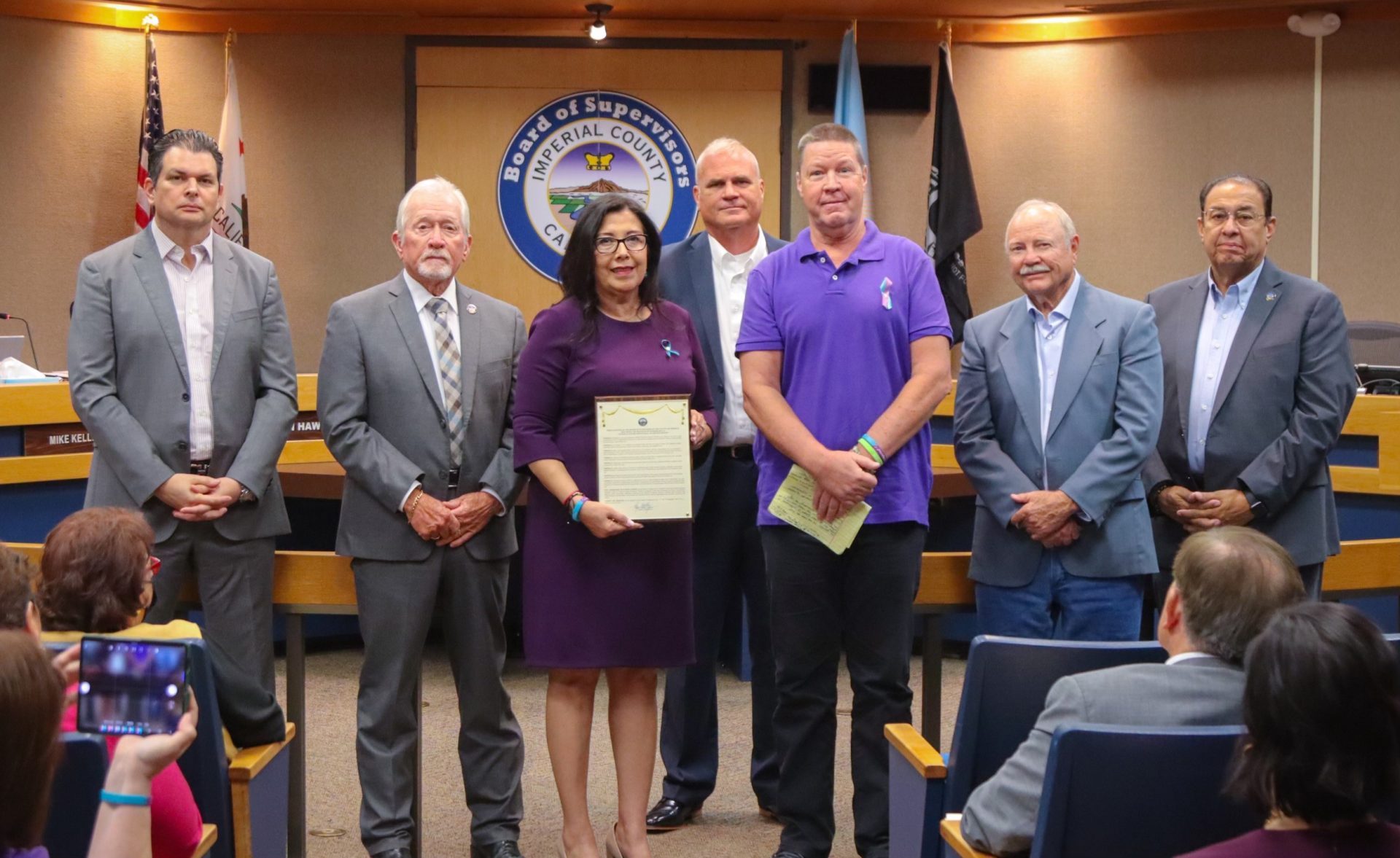
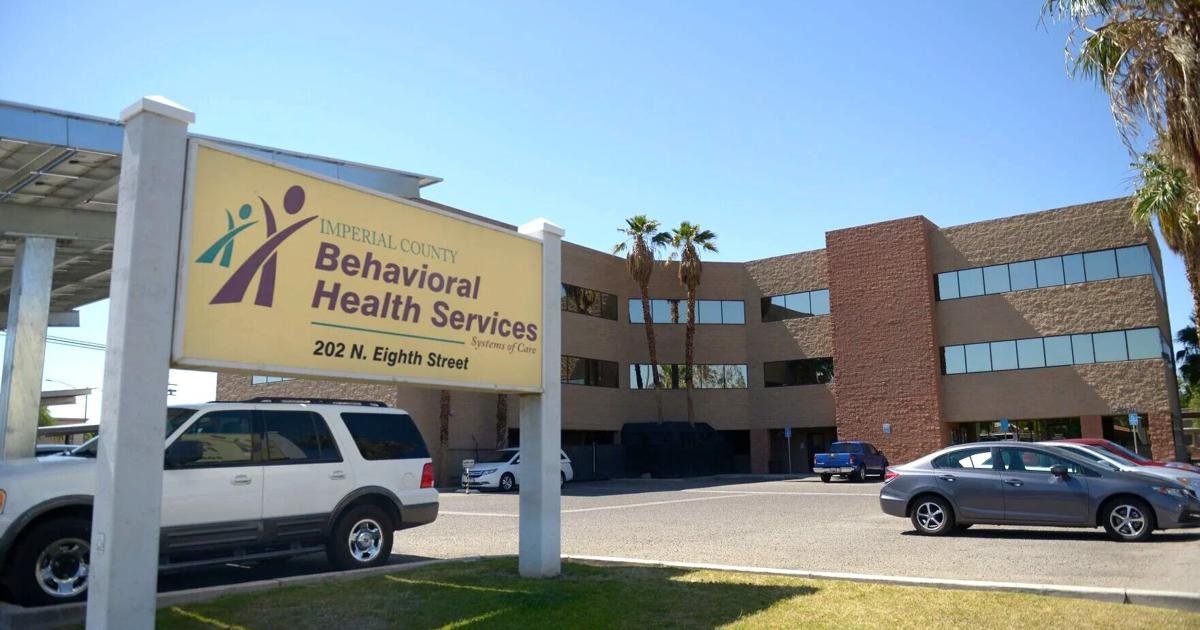
EL CENTRO — The Imperial County Behavioral Health Services (ICBHS) Youth and Young Adult Program is stepping up its outreach efforts for young people between the ages of 14 and 25, with a presence in high schools, middle schools, libraries, and local community events. The initiative offers support for anxiety, depression, and stress, while also educating students on social media pressures and mental health resources.
Lucia Mejia, Community Service Worker for the program, spoke with Imperial Valley Press about the team’s mission to support local youth.
“A lot of anxiety, depression, and stress—that’s mainly what I see from our youth,” Mejia said. “We’re in a lot of high schools and we get to interact with the kids. I do tell them all the time, just because you see it on Instagram or Facebook doesn’t mean it’s real. Remember, you guys, there are filters over there, that whenever you come in person, there’s no filter.”
Adding to the mental health challenges, Mejia said social media distorts kids’ self-image.
“I think a lot of our youth and young adults are going off of what they see on social media, but in reality, we all have imperfections,” Mejia continued. “I think they’re trying to keep up with something that has been fixed or altered to look nice.”
She highlighted a personal example: “So even for us adults as well, it can have its pros and cons. So I can give an example. I have a 14-year-old and he’s like, ‘oh, mom, look at this yacht,’ or ‘this TikToker has this many cars and all this.’ And I’m like, hey, ‘they’re showing you that they have it, but in reality, maybe they owe it. Maybe they just rented it for that video. Maybe it’s not even theirs.’”
Several lawsuits have been filed in California recently in an effort to protect minors from the negative effects of social media. CA AB 2273, also known as the California Age-Appropriate Design Code Act, is a law designed to enhance online protections for children. It requires businesses providing online services, products, or features likely to be accessed by children to prioritize their safety and well-being over commercial interests.
In January 2025, San Diego county officials filed a lawsuit against social media platforms, including Meta and Tiktok, claiming the apps cause digital addiction among youth
Beyond image distortion, Mejia and the Youth Program staff are warning students and parents about hidden risks in social media and online games, particularly those with chat functions that can expose minors to predators.
Reducing stigma around mental health
Despite the risks, social media has opened the door to more open conversations around mental health.
“Before, when we were younger, it was rarely talked about having anxiety and depression. And I think now our youth and our young adults are being more open,” Mejia said.
The Program’s Community Service Worker encourages parents to stay engaged in their kids’ lives through activities and communication.
“Keep them in sports, any sports, any activities,” she said. “Keep them busy with the gym, playing any sports, anything with music lessons, anything that they really enjoy and they’re not being forced to do, something that they enjoy.”
Mejia said keeping an open line of communication between parents and their children is paramount. She admits it can be difficult with work schedules and responsibilities, but parents need to make time with their children.
“Because a lot of the time, a lot of parents are, ‘oh, I’m busy,’ or ‘oh, tell me later,’ or ‘I’m very busy with this and that,’ and that’s where they shift and go somewhere else,” Mejia said. “I think we as parents, just by showing and being supportive and being there for our kids and listening, will have that trust or confidence to come to us and explain, and I mean, what better for us as parents than to give our own children the right advice, right?”
Therapy without parental consent
For youth hesitant to talk to parents or those experiencing issues at home, the law allows for confidential access to therapy starting at age 12.
“Minor consent is by law; anyone that’s 12 and up and mature enough, they can go ahead and start treatment with us,” Mejia said. “They do not need a parent with them.”
Mejia explained that during school hours, no insurance or parental signature is required.
“So for school hours, we don’t ask for insurance. We don’t ask for parent signatures, no address or anything. We don’t contact home or parents,” she said. “So they can go ahead and get minor consent and get therapy only. There’s no medication because they’re underage, but we work with them with therapy.”
Mejia also explained that they do not report or share information from sessions with parents unless the child is at risk of harm.
Special services for at-risk youth
The Youth Program is divided into two branches: general anxiety and depression, and Full Service Partnership (FSP), which serves high-risk populations such as unsheltered youth and those on probation or recently released from juvenile hall.
The program is divided into two sections—anxiety and depression, and FSP.
“FSP clients, the ones that fall in FSP are either unsheltered or they are in probation or they’re coming from a juvenile hall. So those—the FSP clients—are a little bit more delicate; they’re in a little bit tougher situation. So for those clients, we do provide transportation,” she said.
The ICBHS will pick up and drop off the client at their residence. The program also offers tangible incentives for FSP participants.
“If they are in that program, FSP, we have contracts with some gyms here in the county. So we pay for the gym membership. We pay for music lessons or music classes,” she said. In addition, they also offer equine therapy.
“We cover everything, all the expenses, as long as the clients are consistent,” Mejia stated. “They have to be coming and being consistent with their therapies so that way we can go ahead and cover for that.”
Connecting to other services
Mejia said ICBHS also helps clients connect to other county-run wellness or addiction programs.
“For example, there’s anxiety and depression—someone that has anxiety and depression and they started, I don’t know, smoking weed or drinking; we do have a program for substance use disorder that we would do linkage with,” she said.
Those wishing to enroll in services outside school hours can contact the ICBHS for more information and appointments.
Health
McCuskey urges NCAA to restore female athletes' records wrongfully erased by biological males
CHARLESTON, W.Va (WDTV) – Attorney General JB McCuskey has joined a letter urging the NCAA (National Collegiate Athletic Association) to restore female athletes’ records that he says were wrongfully erased by male competitors. McCuskey joins 20 other Attorney Generals in supporting the letter led by Mississippi Attorney General Lynn Fitch. In the letter, the Coalition […]


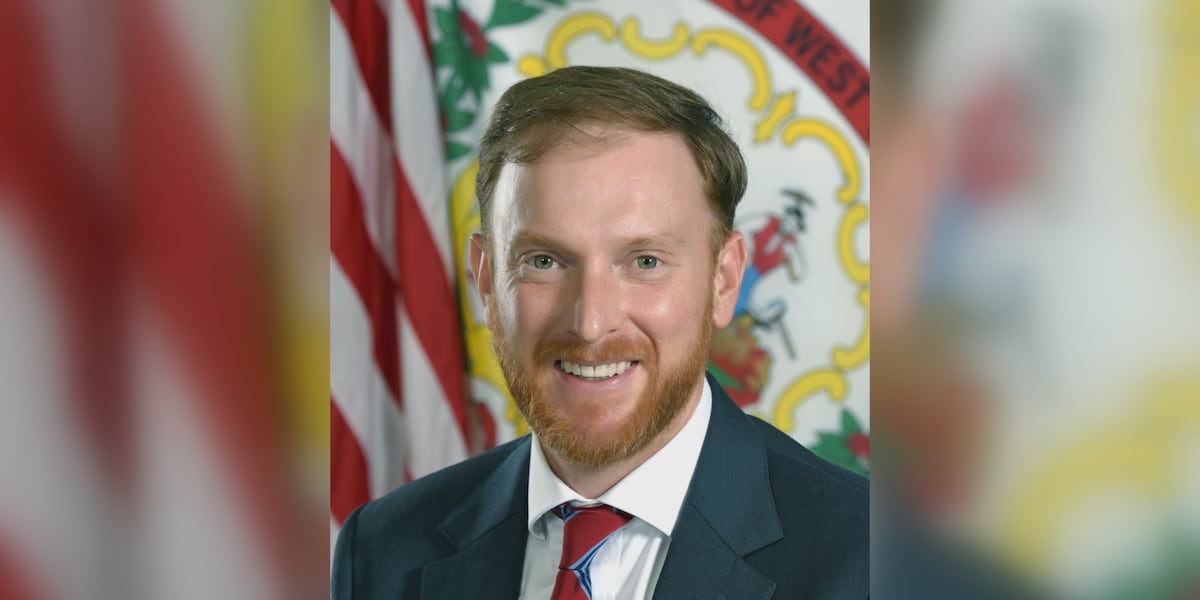
CHARLESTON, W.Va (WDTV) – Attorney General JB McCuskey has joined a letter urging the NCAA (National Collegiate Athletic Association) to restore female athletes’ records that he says were wrongfully erased by male competitors.
McCuskey joins 20 other Attorney Generals in supporting the letter led by Mississippi Attorney General Lynn Fitch.
In the letter, the Coalition urges the NCAA to restore to female athletes the records, titles, awards and recognitions that they rightfully deserve.
The Attorney General claims these accolades were denied because of policies that allow biological males to compete in female categories.
“Biological men should have never been allowed to compete against biological women in the first place,” Attorney General McCuskey said. “But thankfully, we are starting to see the country and our policies turn back to a place where women’s rights matter. Restoring these records to these women is the least schools can do to return what was stolen from them. This is the right thing to do.”
The announcement Tuesday is in line with McCuskey’s ongoing focus on women’s sports and transgender athletes.
McCuskey and the Coalition go on to say, “The NCAA should take this step for former athletes to preserve the integrity of Title IX and show your support for women harmed by years of bad policy.”
West Virginia has passed the ‘Save Women’s Sports Act,’ which provides that girls’ sports teams based on “competitive skill” should not be open to biological males.
Just last month, the U.S. Supreme Court agreed to hear a case against a transgender athlete from Bridgeport High School.
The case involves a challenge to the West Virginia’s ‘Save Women’s Sports Act,’ which McCuskey says protects biological female athletes by keeping sports competitive and safe for women and girls.
The Supreme Court is expected to hear that case during its October 2025 term.
If you would like to read the Coalition’s letter, you can find it here.
Prior coverage:
Copyright 2025 WDTV. All rights reserved.
Health
Maryland Athletics Increases Support, Keeps Sights Set Toward Future Opportunities
Story Links Maryland Athletics raised more than $33 million through the Terrapin Club in the 2024-25 fiscal year, its highest mark since 2021-22. That figure includes more than $18 million in cash, the highest mark in recent history and a key metric as college athletics heads into the new revenue-share era. More than 8,900 donors […]


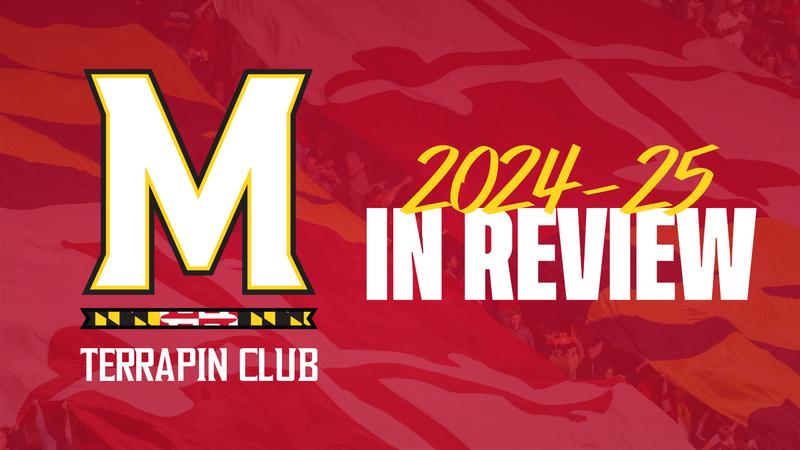
Maryland Athletics raised more than $33 million through the Terrapin Club in the 2024-25 fiscal year, its highest mark since 2021-22. That figure includes more than $18 million in cash, the highest mark in recent history and a key metric as college athletics heads into the new revenue-share era.
More than 8,900 donors invested in Maryland Athletics through the Terrapin Club this year, the most since 2011, and a 26% increase from the previous year, the highest single-year jump in the past 25 years. This number also represents the fourth consecutive year of growth in this area.
“These results are not only a testament to our community and their dedication to Maryland Athletics, but they also illustrate the collective impact Terps supporters can have on student-athletes, programs and the department,” said Kirby Mills, Senior Associate Athletics Director and Chief Development Officer. “However, this is only the start of our work. This coming year, and in years to come, we have lofty aspirations that can only be accomplished together.”
Areas of focus for the 2025-26 year and beyond include increasing unrestricted support that can provide flexibility toward revenue-share expenses and additional scholarships for student-athletes, continuing to upgrade facilities through Maryland Athletics’ Building Champions campaign, cultivating the future of Maryland Athletics support through the launch of a “next generation” program and growth of the Student Terrapin Club, building endowment support across all areas of the enterprise, including student-athlete scholarships, coaching positions and sport programs, and fostering a culture of volunteerism and advocacy across the University of Maryland community.
The Victory Circle, Maryland Athletics’ leadership giving society for those who invest $50,000 or more, added or renewed 61 members this year, the most since the society was formed in 2019 and a 27% year-over-year increase from last year. This year’s efforts pushed the total Victory Circle membership to more than 230.
#UMD is proud to announce an $18M gift from Stephen Schanwald ’77 to support @UMTerps, which helped launch his career, as well as a new @SmithSchool sports management program to launch careers for future Terps.
Read more: https://t.co/5pqb2PA2hK
— Univ. of Maryland (@UofMaryland) December 3, 2024
A transformational gift for the Terps! 🐢 ❤️
Margie & Bob Bedingfield (’72 & ’70) have committed $1.625M to Maryland Athletics, creating two endowed scholarships to support student-athletes for generations to come.
🧵 1/3 pic.twitter.com/mxggSC8lhT
— Maryland Terrapins (@umterps) February 26, 2025
Nearly 30 endowments were established this year to fund student-athlete scholarships across numerous sports and provide consistent support for our student-athlete priorities, including mental health resources and international travel opportunities.
A group of Maryland Football letterwinners who played during the Jerry Claiborne Era of 1972-81, led by Jonathan Claiborne, Kyle Lorton and Bob Schwartz, raised $300,000 to fund a football scholarship in memory of Coach Claiborne.
The Building Champions campaign, a comprehensive effort to provide Maryland Athletics top-notch facilities across all its sports, reached a number of milestones this year, including the opening of the Stanley Bobb Baseball Performance Center and the Maryland Softball Performance Center. Progress continues on the Barry P. Gossett Basketball Performance Center, which is slated to open before the start of the 2025-26 men’s and women’s basketball seasons.
It was our honor to hold today’s Stanley Bobb Baseball Performance Center dedication
We want to thank the Bobb family for their amazing and gracious support of Maryland Baseball pic.twitter.com/77qwW1RytX
— Maryland Baseball (@TerpsBaseball) May 15, 2025
The community once again stepped up on Giving Day as nearly 700 individuals gave more than $600,000 toward supporting Maryland Athletics, which finished in the top three in total dollars and top four in total donors among all campus units in a record-breaking year for the annual campus-wide campaign.
All gifts to Maryland Athletics through the University of Maryland College Park Foundation count toward Terrapin Club giving level and accrue Terpoints, including the recently introduced per seat model for football and men’s basketball season tickets. Click here to make a gift to Maryland Athletics through the Terrapin Club or go to umterps.com to learn more about how philanthropy can make a difference for Maryland’s 500-plus student-athletes and 20 varsity programs.
Health
Founder of group focused on men's mental health applauds Florida bill expanding access to …
NEWS On June 25, Florida Gov. Ron DeSantis signed two bills aiming to promote mental health and addiction recovery, and one Jacksonville man is applauding the legislation, saying he’s happy that Florida is realizing how important the issue is. Senate Bill 1620, which puts several key recommendations from a state behavioral health commission into action, […]


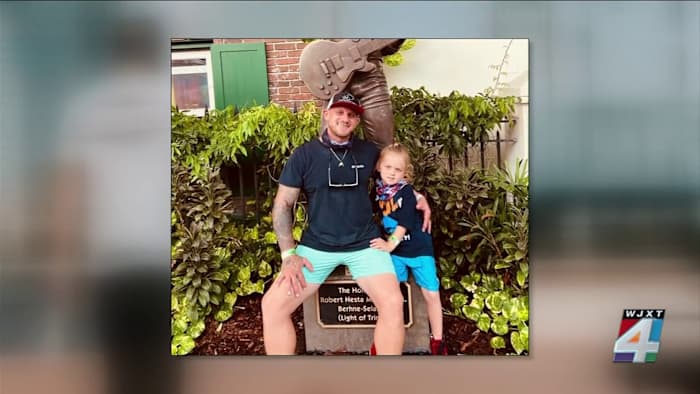
NEWS
On June 25, Florida Gov. Ron DeSantis signed two bills aiming to promote mental health and addiction recovery, and one Jacksonville man is applauding the legislation, saying he’s happy that Florida is realizing how important the issue is. Senate Bill 1620, which puts several key recommendations from a state behavioral health commission into action, sets stricter guidelines for treatment plans and increases access to mental health and substance use resources.
Health
Joliet West alum's basketball clinic focuses on mental health as well as physical performance
A college student running his own nonprofit is hosting his second basketball clinic this year in August. Justus League Hoop Inc. will tentatively host the Back-to-School Basketball Classic from 1 to 5 p.m. Aug. 10. The location has yet to be determined. Justus McNair, 19, founder of the nonprofit, will run the clinic. McNair is […]


:quality(70):focal(979x979:989x989)/cloudfront-us-east-1.images.arcpublishing.com/shawmedia/WQKIYZDHONE2BCD3NBCQLRJTPM.jpg)
A college student running his own nonprofit is hosting his second basketball clinic this year in August.
Justus League Hoop Inc. will tentatively host the Back-to-School Basketball Classic from 1 to 5 p.m. Aug. 10. The location has yet to be determined.
Justus McNair, 19, founder of the nonprofit, will run the clinic.
McNair is a Joliet West High School alumnus and a soon-to-be sophomore at Valparaiso University in Indiana.
He also plays basketball for Roger Powell, head coach of Valparaiso’s men’s basketball team, who attended Joliet Central High School.
The clinic will include giveaways of school supplies, and mental health professionals will be on-site to talk to parents about student-athlete mental health, said Andrea McNair, Justus’ mother.
Justus said his parents, Wayne and Andrea, came up with the idea for the nonprofit in December.
“They made it happen,” Justus said. “I was always thinking of ways to help kids in my area and didn’t know what to do.”
Justus said his parents suggested the basketball clinic, and he suggested the mental health component.
“There’s pressure to become great and play to the highest level,” Justus said. “I’ve been through it, and it can be very hectic.”
Justus said that after he broke his leg freshman year in high school, he felt depressed about not playing and wondered how well his leg might heal.
He wants athletes to reach out when they get stressed and “go into that deep hole,” he said.
Justus said kids need someone “to be in your corner” in order to play stress-free sports, and he wants to help them with their mental health so they can “achieve their dreams.”
“Being from Joliet, it’s somewhat hard to make it out,” Justus said. “And some do take the long routes – gangs, street violence. I just want to help youth stay on the right path.”
For Justus, that right path was basketball. His previous clinic on April 27 attracted 40 youth and children through middle school. He plans to host several a year.
He said his ultimate goal is to open facilities across the U.S. that are part mental health center and part recreational center.
“Kids could come to my gym for free and have it be like safe space for them – and a mental health center as well,” Justus said.
All three of Andrea’s children have played sports, and she said parents sometimes force their athletic expectations onto their children without considering their mental health.
That’s why a mental health specialist talks to parents at the clinic, she said.
“We want them to be the best. We want them to win. We want them to shine. We don’t want them to make mistakes,” Andrea said. “In doing that, we’re not intentional in making sure our children’s mental health is great.”
The purpose of Justus League Hoop Inc. is to empower student-athletes by developing their basketball skills, nurturing their mental wellness and preparing them for success in higher education.
“I just want the community to know we are here to support families and athletes,” Andrea said.
The deadline to donate book bags, pencils and pens, notebooks, colored pencils, index cards and sticky notes is July 25.
To donate and to register for the clinic, call Andrea McNair at 815-272-3736.
For more information, visit Justus League Hoop Inc. on Facebook.
Health
Founder of peer group focused on men's mental health applauds Florida bill expanding …
FLORIDA – On June 25, Florida Gov. Ron DeSantis signed two bills aiming to promote mental health and addiction recovery, and one Jacksonville man is applauding the legislation, saying he’s happy that Florida is realizing how important the issue is. RELATED: Gov. DeSantis signs bills addressing mental health, substance abuse Recommended Videos Senate Bill 1620, […]



FLORIDA – On June 25, Florida Gov. Ron DeSantis signed two bills aiming to promote mental health and addiction recovery, and one Jacksonville man is applauding the legislation, saying he’s happy that Florida is realizing how important the issue is.
RELATED: Gov. DeSantis signs bills addressing mental health, substance abuse
Recommended Videos
Senate Bill 1620, which puts several key recommendations from a state behavioral health commission into action, sets stricter guidelines for treatment plans and increases access to mental health and substance use resources.
For David Sallette, sobriety has been a hard-fought journey.
“It’s the best thing I’ve ever done,” said Sallette, who has been sober for four years. “I’ll never drink again, just because of the health factors and how much better my body feels. I get up in the morning and I’m ready to just kill the day.”
Sallette, a father and recovering alcoholic, founded Sober Dadz, a peer support group built on accountability and open conversation.
He said he hopes the new legislation will make it easier for others to access meaningful support, especially men struggling in silence.
“Honestly, mental health — especially for men — is something that often gets overlooked,” Sallette said. “Men don’t talk as much. They don’t have as many outlets because it can make you look weak. So those issues just build up, and eventually, they explode. That’s just how it happens.”
The new law comes with significant state funding, with more than $123.9 million going toward behavioral health services, including forensic bed capacity and operations at state-run mental health facilities.
Another $194.8 million from the national opioid settlement will fund training for addiction specialists, support prevention programs, and expand the Florida Office of Opioid Recovery, while an additional $31.8 million is earmarked for expanding the state’s Coordinated Opioid Recovery (CORE) Network — a program that has already helped thousands of Floridians struggling with addiction.
“I’m just glad that Florida’s starting to realize how important it is,” Sallette said.
Now four years sober, Sallette hopes the new law gives more people the tools and support they need to begin their recovery journey.
-

 College Sports2 weeks ago
College Sports2 weeks agoWhy a rising mid-major power with an NCAA Tournament team opted out of revenue-sharing — and advertised it
-
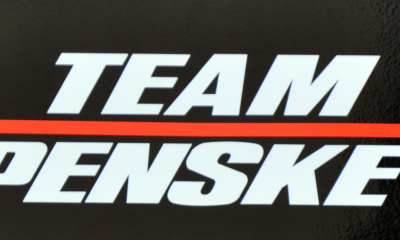
 Motorsports3 weeks ago
Motorsports3 weeks agoTeam Penske names new leadership
-

 Sports2 weeks ago
Sports2 weeks agoNew 'Bosch' spin
-

 Fashion1 week ago
Fashion1 week agoEA Sports College Football 26 review – They got us in the first half, not gonna lie
-
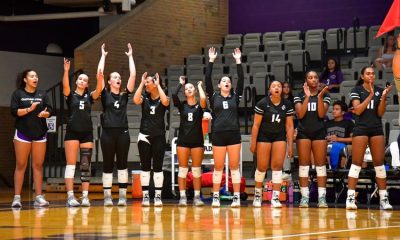
 Sports1 week ago
Sports1 week agoVolleyball Releases 2025 Schedule – Niagara University Athletics
-

 College Sports3 weeks ago
College Sports3 weeks agoMSU Hockey News – The Only Colors
-

 Sports2 weeks ago
Sports2 weeks agoE.l.f Cosmetics Builds Sports Marketing Game Plan Toward Bigger Goals
-

 Health1 week ago
Health1 week agoCAREGD Trademark Hits the Streets for Mental Health Month
-

 College Sports2 weeks ago
College Sports2 weeks agoBuford DB Tyriq Green Commits to Georgia
-

 Youtube2 weeks ago
Youtube2 weeks agoWill LeBron James request a trade? 🤔 Windy says MULTIPLE TEAMS would make offers 👀 | NBA Today




























